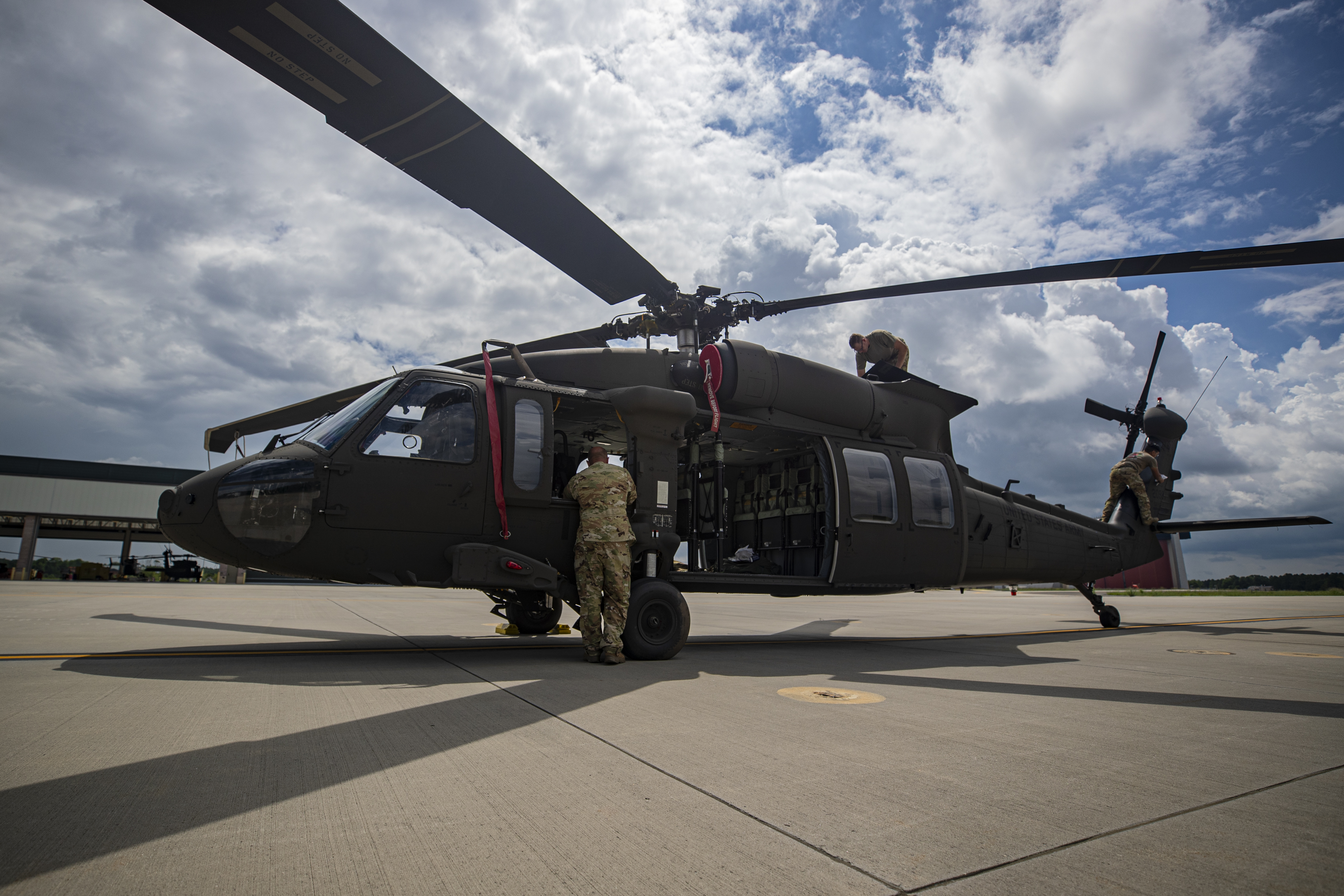UH 60 Helicopter: Advanced Avionics and Battle Systems
UH 60 Helicopter: Advanced Avionics and Battle Systems
Blog Article
The Duty of Airplane in Shaping Global Transport and Profession Characteristics
With the establishment of robust air freight networks, services can currently navigate worldwide markets with remarkable speed and dexterity, consequently redefining supply chain strategies. As we explore the complex impacts of aircraft on worldwide profession, it is important to think about just how these variables will form the future landscape of air travel and its role in the economic climate.

Evolution of Air Transport
The development of air transportation has actually been marked by substantial technical innovations and advancements that have changed the way individuals and goods relocate throughout the world. From the Wright siblings' initial powered trip in 1903 to the development of supersonic jets, each landmark has actually underscored the relentless search of effectiveness and rate in air travel. Early aircraft were primarily primary, restricted by engine power and structural integrity. The intro of innovative materials and aerodynamics in the mid-20th century led to significant improvements in airplane integrity, efficiency, and safety.
The last part of the 20th century experienced the introduction of industrial aeronautics as a practical setting of transportation, identified by the intro of jet engines, which transformed flight by significantly decreasing flight times. Additionally, innovations in navigation and interaction technologies have boosted operational performance and safety and security, enabling even more facility trip routes and schedules. The increase of air cargo in parallel with passenger solutions has further emphasized the versatility of aeronautics. As we seek to the future, emerging technologies such as self-governing and electric aircraft assurance to redefine the air transport landscape, making sure continued evolution and adjustment to global demands.
Impact on Global Trade
Air transport has exceptionally improved worldwide profession by facilitating the swift movement of items across huge ranges. This expedited logistics capability enables businesses to react swiftly to market demands, thus boosting supply chain efficiency. The capability to move subject to spoiling goods, high-value products, and time-sensitive products has opened new markets and possibilities for numerous industries, significantly influencing profession patterns.
In addition, the growth of air freight networks has promoted globalization, allowing companies to source products and items from various components of the world flawlessly. This interconnectedness reduces lead times and expenses, permitting services to continue to be affordable in a significantly global marketplace. Furthermore, air transportation plays an essential function in e-commerce, where consumer expectations for rapid distribution have actually driven a surge in demand for air products solutions.
The impact of aircraft on worldwide profession reaches the development of calculated profession paths, linking regions and helping with worldwide collaborations. Nations that buy air transportation framework typically experience boosted financial development and raised international direct investment. On the whole, the development of air transportation has not only changed the logistics landscape but has likewise end up being an essential element in the characteristics of international profession.

Financial Advantages of Aviation
A durable aviation field produces considerable economic advantages, contributing to job production, tourist, and general financial growth - uh 60. The aviation sector supports millions of work internationally, ranging from direct work in airline companies and flight terminals to indirect roles in fields such as hospitality, transport, and logistics. According to industry reports, for every single task in the aviation field, roughly 3.5 additional tasks are created in the more comprehensive economy
Tourism is an essential component of the financial advantages derived from aviation. Air traveling helps with international tourism, permitting tourists to discover diverse locations, which in turn promotes local economic climates. Nations that invest in their aeronautics facilities usually experience enhanced tourist arrivals, resulting in greater investing on services such as attractions, resorts, and dining establishments.

Additionally, aeronautics boosts worldwide connectivity, allowing organizations why not find out more to access brand-new markets and resources efficiently. As a result, sectors such as ecommerce and manufacturing benefit immensely from reliable air transportation, further driving financial development.
Challenges Dealing With the Aviation Sector
Navigating a complicated landscape of regulatory, environmental, and economic challenges, the aeronautics industry deals with substantial difficulties that threaten its sustainability and development. Laws bordering security and safety are constantly developing, demanding ongoing compliance and adjustment from airline companies and makers (uh 60). This can bring about boosted functional prices and source appropriation that takes away from advancement and growth initiatives
Furthermore, environmental worries have actually become extremely important, with expanding analysis over carbon emissions and sound contamination. The market is under stress to adopt greener technologies and methods, which commonly require significant investment in r & d. Balancing these environmental obligations with the need for flight offers a considerable obstacle.
Economic changes, such as rising gas costs and geopolitical unpredictabilities, better complicate the landscape. Airline companies frequently come to grips with unpredictable operating expenses and rising and fall traveler need, which can influence earnings and long-lasting preparation. Labor shortages and skill spaces in see post vital areas include another layer of complexity, impeding functional efficiency.
Ultimately, attending to these multifaceted challenges is necessary for the aeronautics industry to maintain its crucial role in global transportation and trade, while guaranteeing durability and flexibility in an increasingly competitive market.
Future Patterns in Air Traveling
Emerging technologies and moving consumer preferences are poised to reshape the future of flight substantially. The integration of expert system and artificial intelligence is anticipated to improve functional effectiveness, streamline flight terminal processes, and improve client service. Predictive analytics will help with much more precise demand projecting, enabling airlines to maximize trip schedules and rates models.
Sustainability is coming to be an essential driver in air travel, with the air travel industry increasingly concentrated on decreasing carbon discharges. Advancements in aircraft style, such as hybrid and electric propulsion systems, are being explored to fulfill ecological targets. The fostering of lasting air travel gas (SAFs) is expected to play an essential role in attaining net-zero emissions by 2050.
Customer choices are moving in the direction of personalized travel experiences. Airline companies are purchasing innovative information analytics to imp source customize services and improve customer engagement, making sure an extra personalized journey from reserving to arrival. In addition, the increase of remote work might cause enhanced need for recreation traveling, as people look for to integrate work and holiday.
Final Thought
In conclusion, airplane significantly influence worldwide transport and trade characteristics by assisting in rapid motion and enhancing supply chain effectiveness. The evolution of air transportation has changed worldwide profession, generating significant economic advantages while also presenting challenges that require strategic administration. Future fads suggest a continued reliance on aeronautics for commerce, highlighting its integral role in globalization and economic growth. The recurring adjustment of the air travel market will be necessary for sustaining its payments to the worldwide economic situation.
The latter component of the 20th century experienced the development of commercial aeronautics as a sensible mode of transport, defined by the introduction of jet engines, which reinvented air traveling by drastically minimizing flight times. The surge of air freight in parallel with traveler solutions has actually better emphasized the convenience of air travel. In addition, air transport plays an important role in e-commerce, where consumer expectations for fast delivery have driven a surge in need for air freight solutions.
In general, the advancement of air transport has not just changed the logistics landscape however has likewise end up being an essential component in the characteristics of international profession.
Sustainability is ending up being a crucial motorist in air travel, with the aviation industry progressively focused on decreasing carbon discharges.
Report this page